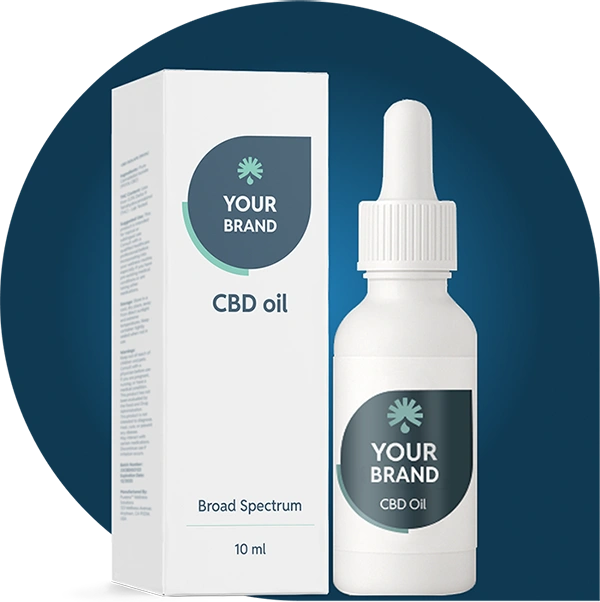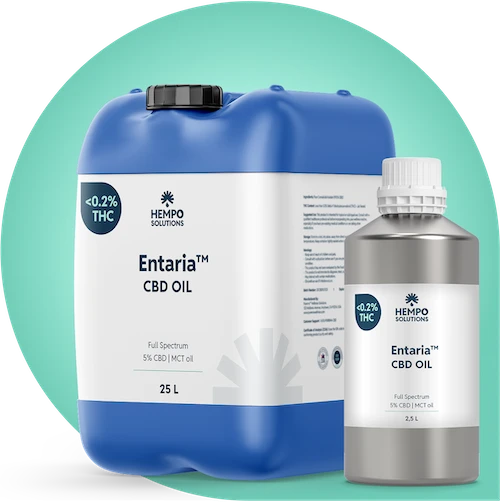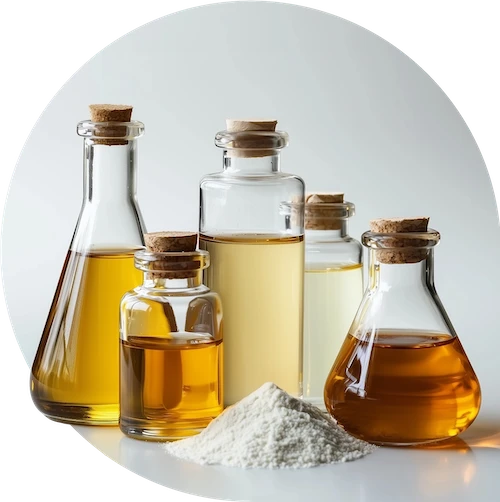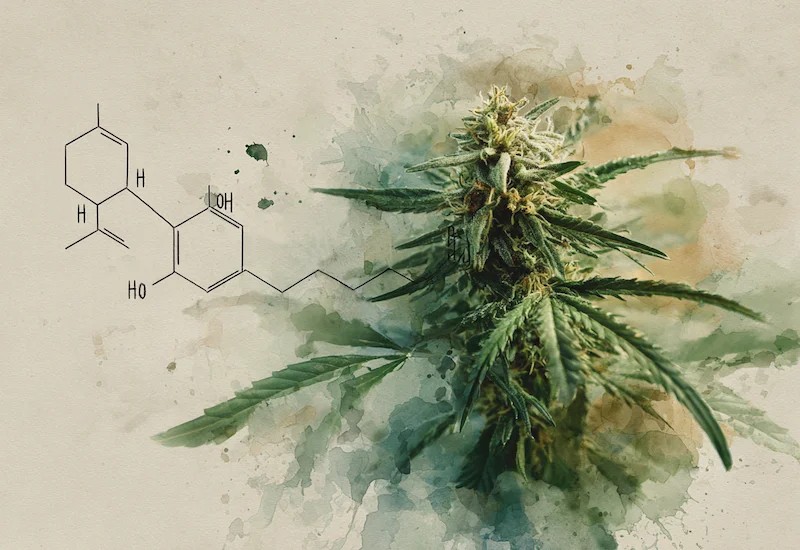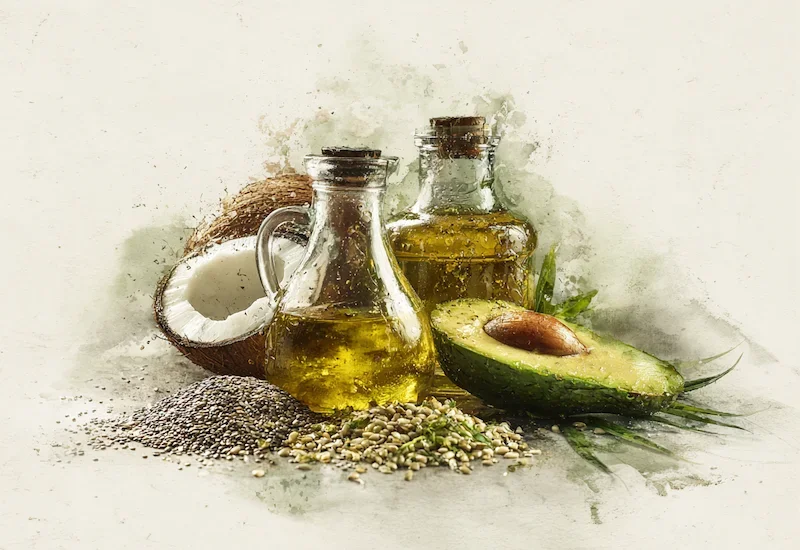What Are Cannabinoids and Why Do They Matter?
Cannabinoids are naturally occurring compounds found in the hemp plant that interact with the body’s endocannabinoid system (ECS), which helps regulate functions such as mood, sleep, pain response, and immune balance. The ECS includes receptors like CB1 and CB2 that respond to different cannabinoids in unique ways.
Understanding cannabinoids is important because the type of CBD oil determines which of these compounds are present. Full-spectrum CBD oil retains a full range of cannabinoids, potentially supporting a more comprehensive effect, while CBD isolate products contain only pure Cannabidiol without any other active plant compounds.
Understanding the Entourage Effect
The “entourage effect” is a term used to describe how the many natural compounds in the hemp plant work together to potentially enhance CBD’s benefits. Instead of acting in isolation, cannabinoids, terpenes, and flavonoids may interact synergistically, supporting a broader range of effects.
Examples of these compounds include:
-
Myrcene (earthy aroma, calming effects)
-
Limonene (citrusy, may support mood)
-
Caryophyllene (spicy, interacts with ECS receptors)
-
Flavonoids (like apigenin or cannaflavin, with antioxidant potential)
For brands, offering full-spectrum or broad-spectrum products can help meet customer demand for this natural, whole-plant approach.
Three Types of CBD Oil and Their Differences
CBD oil is generally available in three main types, each defined by its cannabinoid content and production method. Understanding these differences helps brands choose the right products to meet customer needs and align with market expectations.
-
Full-spectrum CBD oil: Contains all naturally occurring hemp compounds, including cannabinoids, terpenes, flavonoids, and trace levels of THC (generally below 0.2-0.3% to comply with EU limits).
-
Broad-spectrum CBD oil: Includes most of the same plant compounds as full-spectrum but has all THC removed.
-
CBD isolate: Consists of pure CBD with no other cannabinoids, terpenes, or THC.
Full-Spectrum CBD Oil
Full-spectrum CBD oil contains all of the naturally occurring compounds found in the hemp plant. This includes multiple cannabinoids such as CBD, CBG, and CBN, as well as terpenes and flavonoids that add to the oil’s natural scent and flavour.
It also has trace levels of THC, typically kept below 0.2 percent to comply with European regulations. These compounds together may create what is known as the entourage effect, where they work in combination to support a wider range of potential benefits than CBD alone.
For brands, full-spectrum CBD oil is a strong choice for customers who want a natural hemp extract that keeps the plant’s original profile while meeting legal requirements.
IMPORTANT NOTE: Not all “full-spectrum” oils are created equal. In the CBD industry, some products are labelled as full-spectrum but contain only trace levels of other cannabinoids, making them closer to broad-spectrum at best. Achieving a true full-spectrum extract requires meticulous processing to retain a rich profile of beneficial compounds. Brands should always check third-party lab results carefully and compare different manufacturers’ oils before deciding which to offer under their own label.
Broad-Spectrum CBD Oil
Broad-spectrum CBD oil includes many of the same natural compounds as full-spectrum, such as cannabinoids, terpenes, and flavonoids, but with all THC carefully removed. This option gives customers the benefits of multiple hemp plant compounds without any detectable THC.
For brands, broad-spectrum CBD oil is a good choice for customers who want the potential benefits of the entourage effect but need or prefer to avoid THC completely. It is especially popular in markets or among consumers where any level of THC is a concern.
CBD Isolate
CBD isolate is the purest form of CBD, containing only the cannabidiol compound with no other cannabinoids, terpenes, or THC. It is highly refined to remove all other plant materials, resulting in a consistent and predictable product.
For brands, CBD isolate is a strong option for customers who want CBD on its own without any other hemp compounds. It is also popular for developing products that prioritise taste, as it lacks the natural bitterness or earthiness found in full-spectrum or broad-spectrum extracts. This makes it easier to create CBD oils and other products with cleaner, more appealing flavours while ensuring they are fully THC-free.
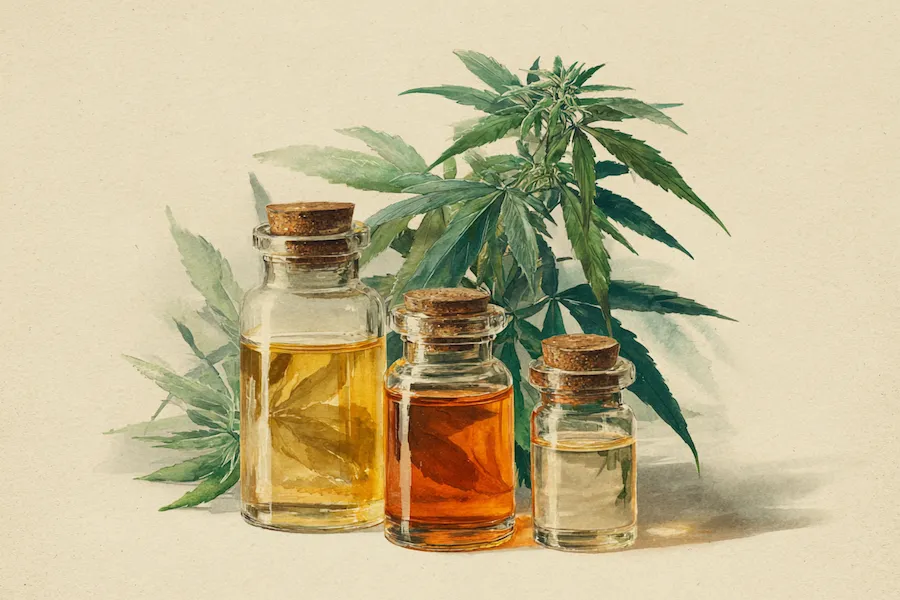
Which Type of CBD Oil to Choose?
Choosing the right type of CBD oil depends on your customers’ needs and local regulations.
Based on our experience manufacturing CBD products and selling them through our own retail brand “Hempo”, we’ve consistently seen:
#1 Full-spectrum CBD oil is the most popular option where up to 0.2% THC is permitted. Customers value its natural profile and the potential benefits of the entourage effect.
#2 Broad-spectrum CBD oil is chosen by those wanting to avoid THC entirely, such as professional athletes or nursing mothers.
#3 CBD isolate is best suited for brands that want to focus on flavour as their main selling point, since its pure form makes it ideal for creating better-tasting CBD oils without the natural hemp bitterness or earthiness.
By understanding these preferences, you can better match your product line to your target market.
Production Differences
The main types of CBD oil all start with extracting cannabinoids and other compounds from hemp, but their production processes differ to achieve their final profiles:
-
Full-spectrum CBD oil is typically produced using methods like CO2 extraction that preserve the plant’s full range of cannabinoids, terpenes, and flavonoids. The goal is to maintain the natural balance of compounds, including trace THC within legal limits.
-
Broad-spectrum CBD oil begins as full-spectrum extract but undergoes additional refinement, such as chromatography, to remove all detectable THC while keeping other cannabinoids and terpenes.
-
CBD isolate goes through further purification steps to strip away everything except pure CBD. This includes processes like winterisation, filtration, and repeated distillation to ensure a highly refined, THC-free final product.
Summary
Choosing the right type of CBD oil is essential for brands looking to build trust and meet customer expectations in the competitive European market.
Full-spectrum, broad-spectrum, and CBD isolate each have distinct profiles, benefits, and production methods:
-
Full-spectrum CBD oil retains the full range of hemp plant compounds, offering potential benefits through the entourage effect, but requires careful sourcing to ensure quality.
-
Broad-spectrum CBD oil delivers many of the same beneficial compounds without any THC, suiting customers who want to avoid it entirely.
-
CBD isolate offers pure CBD with no other cannabinoids or terpenes, making it ideal for brands focused on flavour and consistent THC-free formulations.
By understanding these differences, checking third-party lab results, and choosing reputable manufacturing partners, brands can deliver high-quality, compliant products that truly meet customer needs.

